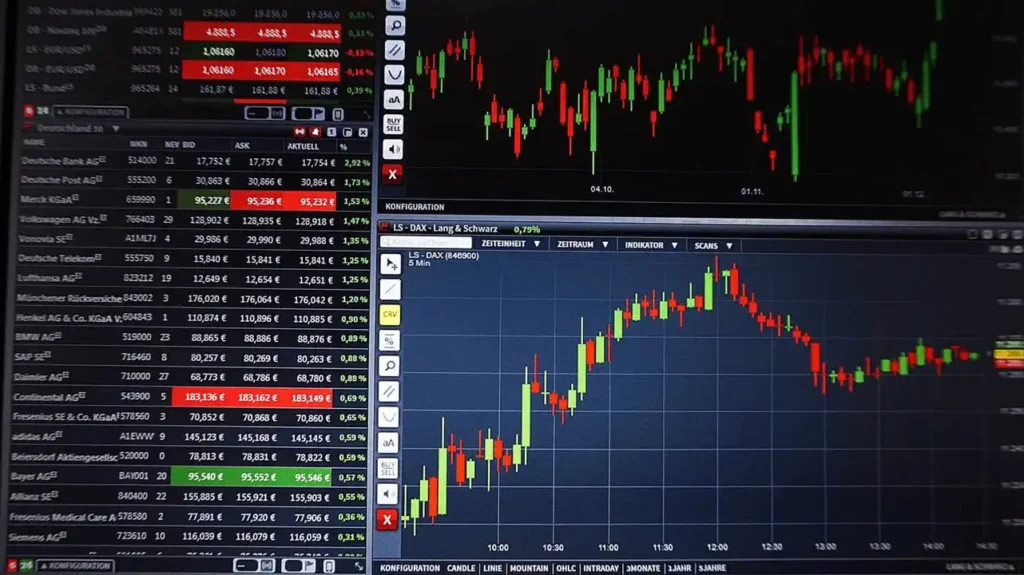A prominent economist has identified the Central Bank of Nigeria’s (CBN) rigid foreign exchange policy as the most damaging economic policy for Nigerian businesses in 2022. Dr. Muda Yusuf, Chief Executive Officer of the Centre for the Promotion of Private Enterprise (CPPE), made this assertion during an interview on Arise TV, where he discussed the economic challenges faced by Nigeria last year.
Dr. Yusuf, a former Director General of the Lagos Chamber of Commerce and Industry (LCCI), emphasized that the CBN’s approach to managing the forex market created severe bottlenecks for businesses, hindered investor confidence, and ultimately contributed to Nigeria’s economic underperformance.
Forex Regime Created More Harm Than Good
Speaking on the impact of the CBN’s policies, Yusuf lamented that despite widespread calls from global institutions such as the World Bank, economists, and local stakeholders for a review of the country’s foreign exchange policy, the CBN remained inflexible. As a result, he said, businesses bore the brunt of this stance.
“It was one of the most problematic policy instruments in 2022. The CBN’s resistance to adjusting its foreign exchange framework despite advocacy from reputable institutions and stakeholders significantly hurt the economy,” he stated.
He explained that the foreign exchange policy did not support economic growth but instead fostered systemic corruption and arbitrage. According to him, only currency dealers and middlemen benefitted from the multiple exchange rates, while productive sectors of the economy suffered.
Currency Speculators Benefitted, Businesses Suffered
Yusuf further argued that the CBN’s forex regime created room for exploitation and unfair advantages for a select few.
“The only beneficiaries of this policy were people who engaged in arbitrage – moving currencies from one point to another and profiting from the wide margins. Meanwhile, key players in the real economy were severely disadvantaged,” he noted.
The economic expert also highlighted how the policy affected international trade and investment. He pointed to the inability of foreign airlines to repatriate their profits, as well as the growing reluctance of foreign investors to do business in Nigeria, citing the damaging reputational consequences of such restrictive policies.
“It created an embarrassing situation for international airlines, which were unable to recover funds trapped in the country. Foreign investors were also discouraged. All these reflect poorly on Nigeria’s investment climate,” Yusuf said.
Repercussions on Inflation and Cost of Living
Dr. Yusuf attributed part of Nigeria’s persistent inflation in 2022 to the CBN’s foreign exchange management. He explained that the depreciation of the naira, combined with other structural challenges, amplified inflationary pressures across multiple sectors.
He identified the following as major contributors to inflation during the year:
-
Depreciation of the naira: Limited access to foreign exchange drove up the cost of imports, particularly for manufacturers and traders.
-
Rising energy costs: Increased fuel and power prices further strained household incomes and operational costs for businesses.
-
Transportation expenses: High logistics costs, partly due to fuel hikes and insecurity, made goods and services more expensive.
-
Insecurity: Widespread insecurity in many parts of the country disrupted agricultural activities and supply chains.
-
External global shocks: Global inflation and commodity price volatility due to geopolitical tensions and post-pandemic recovery challenges also played a role.
Yusuf concluded that the interplay between domestic policy failures and global economic trends created a perfect storm that drove inflation and stifled growth in 2022.
Call for Policy Reforms
The economist reiterated the need for urgent reforms in Nigeria’s monetary and foreign exchange policy space. He called on the CBN to adopt a more flexible and transparent forex system that aligns with market realities and promotes investor confidence.
“We need a forex regime that is market-reflective, transparent, and devoid of multiple rates. It is the only way to restore credibility and attract meaningful investment into the economy,” he urged.
Dr. Yusuf also stressed the importance of broader economic reforms, including:
-
Improving energy infrastructure and reducing reliance on imported fuel.
-
Strengthening the security architecture to ensure safer business operations.
-
Implementing transport sector reforms to reduce logistics costs.
-
Supporting local production to reduce import dependence and stabilize the exchange rate.
Outlook for the Future
While acknowledging that 2022 posed significant challenges, Yusuf expressed optimism that with the right policy shifts, Nigeria’s economy could rebound. He encouraged the new leadership at the CBN and economic policymakers to reflect on past mistakes and adopt inclusive, transparent, and growth-oriented strategies.
As Nigeria continues to grapple with inflation and sluggish growth, analysts like Yusuf believe that bold reforms—particularly in the forex market—will be critical to unlocking the country’s economic potential and creating a more resilient future for businesses and citizens alike.







